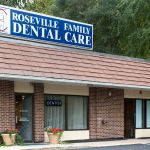Best Ways to Prevent Plaque Buildup on Teeth: Effective Tips for Healthy Smiles
- Understanding Plaque and Its Effects
- Top Ways to Prevent Plaque Buildup
- Dental Habits That Help Prevent Plaque
- Common Mistakes That Encourage Plaque Formation
- Where to Learn More About Plaque Prevention
Understanding Plaque and Its Effects
Plaque is a sticky film of bacteria that forms on your teeth and gums. When not removed through regular brushing and flossing, it can harden into tartar, leading to potential dental problems like cavities, gum disease, and bad breath. Plaque buildup is a common issue for many people, but it is entirely preventable with the right oral care habits.
The bacteria in plaque feed on sugars from food and drink, producing acids that can erode tooth enamel and irritate the gums. Over time, this can lead to tooth decay and gum inflammation, which is why maintaining a plaque-free smile is essential for long-term oral health.
Top Ways to Prevent Plaque Buildup
Preventing plaque buildup requires a consistent and proactive approach to dental hygiene. Here are some of the most effective ways to keep your teeth and gums healthy:
1. Brush Your Teeth Twice a Day
The most important step in plaque prevention is brushing your teeth at least twice a day, preferably after meals. Use fluoride toothpaste and a soft-bristled toothbrush to clean your teeth thoroughly, reaching all surfaces. Don't forget to brush your tongue, too, as it can also harbor bacteria.
2. Floss Daily
Flossing is just as important as brushing when it comes to plaque prevention. It removes food particles and plaque buildup from between your teeth and along the gum line, areas that a toothbrush alone cannot reach. Make flossing a daily habit to ensure your teeth stay plaque-free.
3. Use Mouthwash
A mouthwash that contains antibacterial properties can help kill plaque-causing bacteria and freshen your breath. Look for mouthwashes that are alcohol-free and specifically designed for plaque control. Rinsing once a day after brushing and flossing can provide an extra layer of protection against plaque buildup.
4. Visit Your Dentist Regularly
Regular dental check-ups are crucial for preventing plaque buildup. Dentists can spot early signs of plaque accumulation, tartar buildup, and other oral health issues before they become serious problems. Professional cleanings every 6 months can help keep your teeth free from hardened plaque.
Dental Habits That Help Prevent Plaque
In addition to your brushing, flossing, and regular check-ups, here are some daily habits that can help reduce plaque buildup:
1. Eat a Tooth-Friendly Diet
A balanced diet plays a vital role in preventing plaque. Foods rich in calcium, like dairy products and leafy greens, help strengthen your teeth. Avoid sugary snacks and drinks, as sugar feeds the bacteria that cause plaque formation. Instead, opt for healthy snacks like raw vegetables and fruits, which can help clean your teeth naturally.
2. Stay Hydrated
Drinking plenty of water throughout the day helps rinse away food particles and bacteria in your mouth, keeping your teeth cleaner for longer. Water also promotes saliva production, which neutralizes acids and helps protect your teeth from plaque buildup.
3. Chew Sugar-Free Gum
Chewing sugar-free gum after meals can help reduce plaque by stimulating saliva flow. Saliva helps wash away food particles and neutralizes acids in the mouth, making it easier to prevent plaque buildup between brushings.
Common Mistakes That Encourage Plaque Formation
While many people practice basic dental hygiene, there are some common mistakes that can contribute to plaque buildup:
1. Brushing Too Hard
Brushing too aggressively can damage your gums and tooth enamel, making your teeth more vulnerable to plaque buildup. Instead, use gentle, circular motions to clean your teeth and gums without causing irritation.
2. Skipping Flossing
Many people skip flossing, thinking that brushing is enough. However, without flossing, plaque can accumulate between your teeth and along the gum line, leading to cavities and gum disease. Always make flossing a part of your daily oral care routine.
3. Not Replacing Your Toothbrush
Using a worn-out toothbrush with frayed bristles can make brushing less effective. Be sure to replace your toothbrush or toothbrush head every 3 to 4 months to maintain optimal brushing efficiency and plaque removal.
Where to Learn More About Plaque Prevention
For additional resources on preventing plaque buildup and improving your oral health, visit Dentistry Toothtruth. They provide expert advice, product recommendations, and more to help you maintain a plaque-free smile. From toothpaste tips to advanced oral care products, they offer everything you need to keep your teeth and gums healthy.
Don't wait for plaque to take its toll on your smile. Start implementing these habits today, and take control of your oral health for a lifetime of strong, healthy teeth.







 Glamorous Smile Dental Spa5.0 (17 review)
Glamorous Smile Dental Spa5.0 (17 review) OMS Nashville - Dental Implants & Oral Surgery4.0 (245 review)
OMS Nashville - Dental Implants & Oral Surgery4.0 (245 review) ForwardDental Madison West4.0 (220 review)
ForwardDental Madison West4.0 (220 review) The Bronx Dental Center4.0 (557 review)
The Bronx Dental Center4.0 (557 review) Dr. Jeffrey C. Klein DDS5.0 (11 review)
Dr. Jeffrey C. Klein DDS5.0 (11 review) Roseville Family Dental Care4.0 (204 review)
Roseville Family Dental Care4.0 (204 review) The Importance of Oral Health Education During Pregnancy for a Healthy Pregnancy
The Importance of Oral Health Education During Pregnancy for a Healthy Pregnancy Best Tips for Brushing Your Teeth Properly for Healthy Gums: Essential Techniques for Oral Health
Best Tips for Brushing Your Teeth Properly for Healthy Gums: Essential Techniques for Oral Health Why Skipping Dental Checkups Can Lead to Bigger Oral Health Problems
Why Skipping Dental Checkups Can Lead to Bigger Oral Health Problems Advantages of Porcelain Dental Restorations
Advantages of Porcelain Dental Restorations How Can Diabetes Cause Tooth and Gum Problems? Preventing and Managing Oral Health Issues
How Can Diabetes Cause Tooth and Gum Problems? Preventing and Managing Oral Health Issues Healthy Habits for Promoting Good Oral Health and Hygiene: Tips for a Healthy Smile
Healthy Habits for Promoting Good Oral Health and Hygiene: Tips for a Healthy Smile